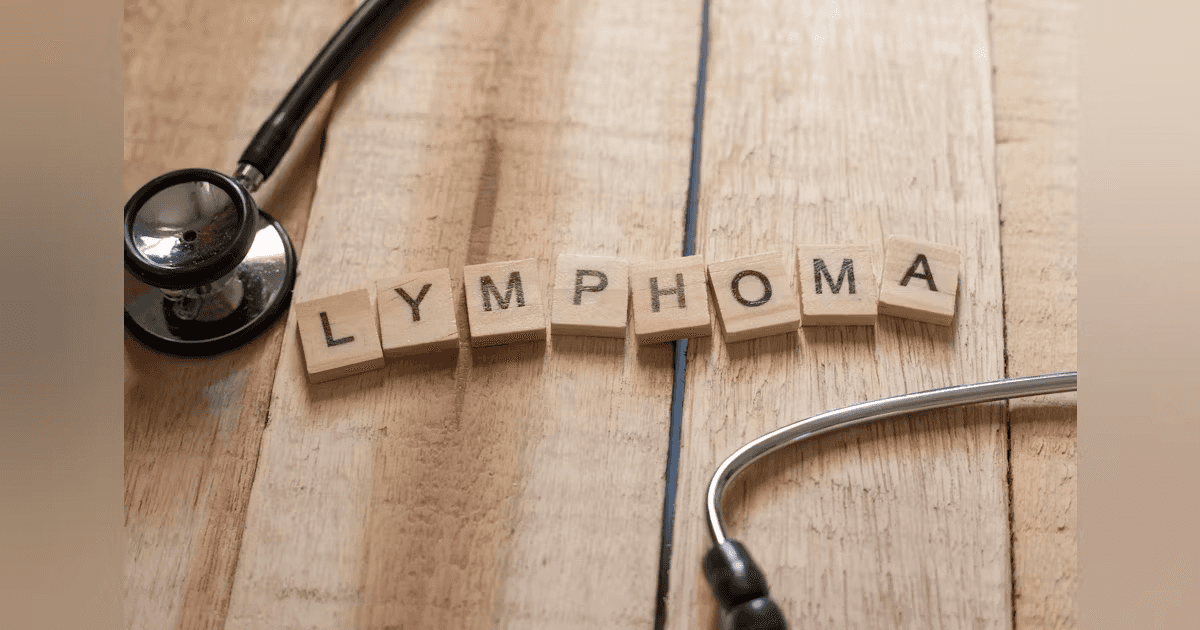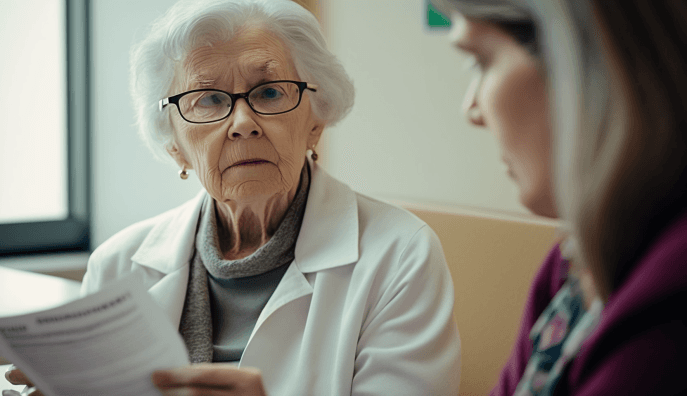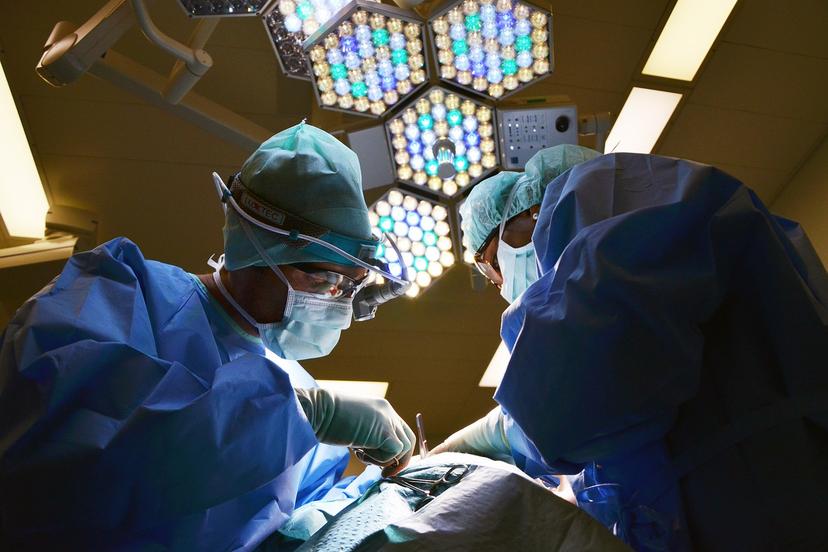
Lymphoma Treatment in the UK: Advanced Care for Patients from Russia
01 Aug, 2024
 Healthtrip Team
Healthtrip TeamThe United Kingdom is renowned for its cutting-edge medical treatments, particularly in the field of oncology. For Russian patients seeking advanced care for lymphoma, the UK offers some of the most comprehensive and innovative treatment options available. This blog will explore the various aspects of lymphoma treatment in the UK, highlighting the advanced care options, the advantages of seeking treatment abroad, and the specific steps Russian patients can take to access these services.
Most popular procedures in India
Lymphoma
Lymphoma is a type of cancer that begins in the lymphatic system, which is part of the body’s immune system. There are two primary types of lymphoma: Hodgkin lymphoma and non-Hodgkin lymphoma. Treatment approaches can vary significantly depending on the type and stage of lymphoma, as well as the patient’s overall health.
Wellness Treatments
Give yourself the time to relax
Lowest Prices Guaranteed!

Lowest Prices Guaranteed!
Why Choose the UK for Lymphoma Treatment?
1. Advanced Medical Facilities
The UK is home to some of the world’s leading cancer treatment centers, such as The Royal Marsden Hospital, The Christie NHS Foundation Trust, and University College London Hospitals (UCLH). These institutions are equipped with state-of-the-art technology and offer comprehensive care from diagnosis to treatment and follow-up.
2. Expert Oncologists
British oncologists are highly trained and experienced in treating lymphoma. Many of them are involved in groundbreaking research and clinical trials, ensuring that patients have access to the latest treatments and therapies.
3. Innovative Treatments
The UK is at the forefront of developing new cancer treatments, including immunotherapy, targeted therapy, and CAR T-cell therapy. These treatments have shown promising results in improving survival rates and quality of life for lymphoma patients.
Treatment Options Available in the UK
1. Chemotherapy
Chemotherapy is a cornerstone in the treatment of lymphoma and involves the use of potent drugs to kill cancer cells or halt their proliferation. The UK offers various chemotherapy regimens customized to the specific type and stage of lymphoma, ensuring each patient receives the most effective treatment.
Types of Chemotherapy
A. Combination Chemotherapy: This involves using a mix of different chemotherapy drugs to attack cancer cells in various ways, increasing the treatment's effectiveness. Common regimens include CHOP (Cyclophosphamide, Doxorubicin, Vincristine, and Prednisone) for non-Hodgkin lymphoma and ABVD (Adriamycin, Bleomycin, Vinblastine, and Dacarbazine) for Hodgkin lymphoma.B. Single-Agent Chemotherapy: In some cases, a single chemotherapy drug may be sufficient, especially in early-stage lymphoma or when the cancer is particularly sensitive to a specific drug.
Administration Methods
A. Intravenous (IV) Chemotherapy: Drugs are administered directly into the bloodstream through a vein, allowing for rapid distribution throughout the body. This method is commonly used for many chemotherapy drugs and typically requires regular visits to the hospital or clinic.B. Oral Chemotherapy: Some chemotherapy drugs are available in pill form, making it more convenient for patients to take at home. This method requires strict adherence to the prescribed schedule to ensure effectiveness.
C. Intrathecal Chemotherapy: This method involves injecting chemotherapy drugs directly into the cerebrospinal fluid to treat lymphoma that has spread to the brain or spinal cord. This technique ensures that the drugs reach areas that are typically protected by the blood-brain barrier.
2. Radiotherapy
Radiotherapy uses high-energy radiation to destroy cancer cells. The UK utilizes some of the most advanced radiotherapy techniques available, offering precise treatment options that minimize damage to healthy tissues.
Types of Radiotherapy
A. External Beam Radiotherapy (EBRT): The most common form of radiotherapy, where beams of radiation are directed at the cancer from outside the body. The process typically involves multiple sessions over several weeks.B. Intensity-Modulated Radiotherapy (IMRT): This advanced form of EBRT allows doctors to modulate the radiation dose, precisely targeting the tumor while sparing surrounding healthy tissue. IMRT is particularly useful for treating lymphomas located near vital organs.
C. Proton Beam Therapy: A cutting-edge technique that uses protons rather than X-rays, allowing for highly targeted treatment with fewer side effects. Proton therapy is especially beneficial for children and young adults, as it reduces the risk of long-term radiation damage.
Treatment Planning
Before starting radiotherapy, patients undergo a planning session where the treatment area is mapped out using imaging techniques such as CT or MRI scans. This ensures the radiation is delivered precisely where it is needed. The planning process may involve creating a custom mask or mold to keep the patient still during treatment.
3. Stem Cell Transplantation
Stem cell transplantation is a critical option for patients with relapsed or refractory lymphoma. It involves replacing diseased or damaged bone marrow with healthy stem cells, which can regenerate healthy blood cells.
Types of Stem Cell Transplantation
- Autologous Transplant: The patient’s own stem cells are harvested, treated, and then reintroduced after high-dose chemotherapy or radiotherapy. This type of transplant is generally less risky since it uses the patient's cells, reducing the chances of rejection.
- Allogeneic Transplant: Stem cells are obtained from a compatible donor. This type carries a higher risk but can be more effective, particularly for certain types of lymphoma. The donor can be a family member or an unrelated match found through international registries.
Procedure
- Stem Cell Harvesting: For autologous transplants, stem cells are collected from the patient’s blood or bone marrow. This process, known as apheresis, involves drawing blood from the patient, separating out the stem cells, and returning the rest of the blood to the body.
- Conditioning Therapy: Patients undergo high-dose chemotherapy or radiotherapy to destroy the cancerous cells and create space for the new stem cells. This intensive treatment also suppresses the immune system to reduce the risk of transplant rejection.
- Stem Cell Infusion: The harvested or donor stem cells are infused into the patient’s bloodstream, where they migrate to the bone marrow and begin producing new blood cells. Recovery and engraftment, where the new stem cells start to grow and produce healthy blood cells, take several weeks.
4. Immunotherapy
Immunotherapy represents a significant advancement in the treatment of lymphoma, leveraging the body’s immune system to combat cancer. The UK offers several immunotherapy options, often through participation in clinical trials.
Types of Immunotherapy
A. Checkpoint Inhibitors: These drugs block proteins that prevent the immune system from attacking cancer cells. By inhibiting these checkpoints, the immune system can better recognize and destroy cancer cells. Common checkpoint inhibitors include pembrolizumab (Keytruda) and nivolumab (Opdivo).B. CAR T-Cell Therapy: This revolutionary treatment involves modifying a patient’s T-cells to express a receptor specific to cancer cells, enabling them to target and kill lymphoma cells effectively. CAR T-cell therapy has shown remarkable success in certain types of lymphoma, particularly in cases that have not responded to other treatments.
Administration
Most immunotherapies are administered through an IV, allowing for direct entry into the bloodstream and immediate action against cancer cells. Treatment schedules can vary, with some drugs requiring infusions every few weeks.
5. Targeted Therapy
Targeted therapy drugs are designed to target specific molecules involved in the growth and survival of cancer cells. These treatments are less toxic than traditional chemotherapy and can be highly effective in certain types of lymphoma.
Types of Targeted Therapy
A. Monoclonal Antibodies: These lab-made molecules can bind to specific proteins on cancer cells, marking them for destruction by the immune system. Rituximab is a common monoclonal antibody used in lymphoma treatment, targeting the CD20 protein on B-cells.B. Tyrosine Kinase Inhibitors (TKIs): These drugs block signals that cancer cells need to grow and divide. They are particularly effective in certain types of non-Hodgkin lymphoma. Ibrutinib and acalabrutinib are examples of TKIs used in lymphoma treatment.
Administration
A. Oral Medication: Many targeted therapies are available in pill form, making them convenient for outpatient treatment. Patients need to follow a strict medication schedule and attend regular follow-up appointments to monitor progress and manage side effects.B. Intravenous Infusion: Some targeted therapies are administered through an IV, similar to chemotherapy. This method is often used for monoclonal antibodies and requires regular hospital visits.
6. Clinical Trials
The UK is a leader in clinical research, providing lymphoma patients access to cutting-edge treatments not yet widely available. Participation in clinical trials can offer several benefits, including access to new therapies and close monitoring by a team of experts.
Types of Clinical Trials
- Phase I Trials: These early-stage trials test the safety and dosage of new treatments. They are typically small studies involving a limited number of patients.
- Phase II Trials: These trials evaluate the effectiveness of new treatments and further assess their safety. They involve more patients and provide more detailed information on the treatment’s impact.
- Phase III Trials: These large-scale trials compare new treatments with the current standard of care to determine their relative efficacy. Successful phase III trials can lead to the approval of new treatments for widespread use.
The UK offers a comprehensive range of advanced treatment options for lymphoma, including chemotherapy, radiotherapy, stem cell transplantation, immunotherapy, and targeted therapy. With its state-of-the-art medical facilities and world-renowned specialists, the UK is a top destination for patients seeking the best possible care for lymphoma. Russian patients considering treatment in the UK can expect to receive personalized care plans based on the latest research and clinical advancements.
For Russian patients seeking advanced lymphoma treatment, the UK offers a wealth of options, from cutting-edge medical facilities to world-renowned specialists. By taking the necessary steps to access treatment in the UK, patients can benefit from the latest therapies and improve their chances of successful outcomes. The journey may require careful planning and coordination, but the potential benefits make it a worthwhile endeavor for those battling lymphoma.
Related Blogs

Unparalleled Medical Expertise at Cleveland Clinic London
Get access to world-class medical expertise at Cleveland Clinic London

Bone Cancer Treatment in the UK: Advanced Care for Patients from Russia
Bone cancer is a serious and challenging condition that requires

Vulvar Cancer Treatment in the UK: Expert Care for Patients from Russia
Vulvar cancer, though rare, is a serious condition that requires

Kidney Cancer Treatment Strategies in the UK: A Guide for Patients from Russia
Kidney cancer presents a significant health challenge, and navigating treatment

Leukemia Treatment Options in the UK: A Guide for Patients from Russia
Leukemia, a type of cancer that affects the blood and

Exploring Medical Tourism in the UK for Russian Patients
Medical tourism is a growing trend among Russian patients seeking










